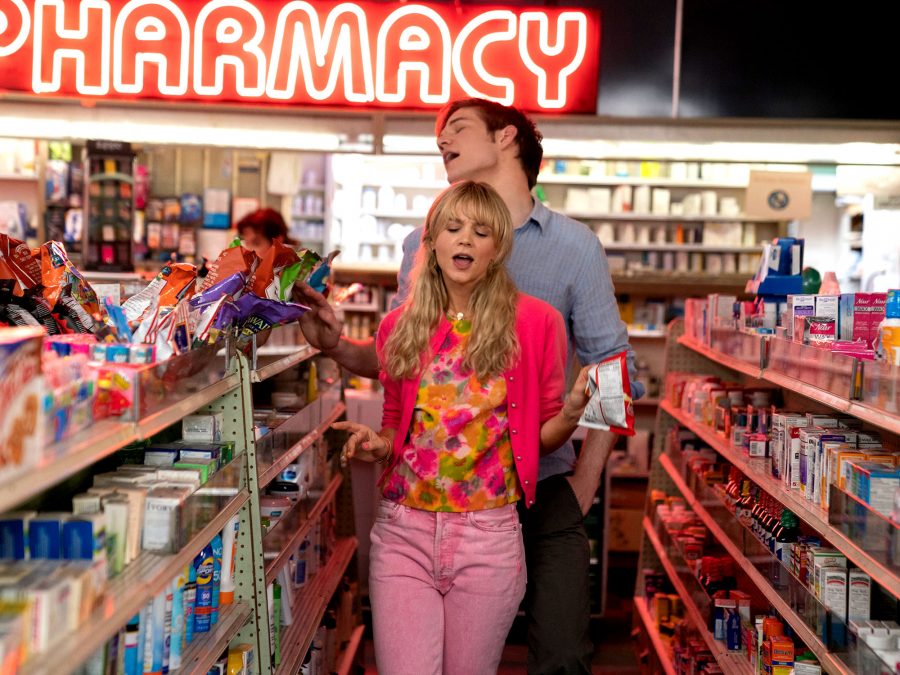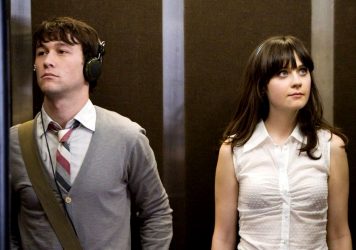A ferocious lead turn by Carey Mulligan super-charges this shocking, outspoken debut that pulls none of its punches.
In an interview with The New York Times that ran in February 2020, Harvey Weinstein’s attorney, Donna Rotunno, was asked by reporter Megan Twohey if she had ever been a victim of sexual assault. “I have not,” Rotunno replied. “Because I would never put myself in that position.”
It’s not a surprise that the woman defending Weinstein would have such a misguided view of how predators operate, but it is a damning indictment of the world we live in all the same. For all the self-aggrandising award speeches and glittery placards with catchy slogans yearning for sexual enlightenment, many people still believe that, sometimes, women deserve to be assaulted. To be clear: that is unequivocal, undeniable bullshit. No matter what a woman is wearing, how drunk she is, or any other mitigating factor reported by journalists or argued by lawyers or gossiped about at brunch by so-called “friends”, she never deserves to be raped.
Emerald Fennell’s debut feature, Promising Young Women, comes at a time when this introspection feels more vital than ever, forcing us to confront our tendency toward complacency in the face of unpleasant home truths. It seems ridiculous that we keep having to go over this basic principle, but the system is fucked from the top down, and we’re all caught in its web, hopelessly kicking out in attempts to find a way through. For as long as we have been making art we have been using it as a means to both process trauma and hit back at the flaws of the society that has birthed and raised us.
The film’s title refers to Cassandra ‘Cassie’ Thomas (Carey Mulligan), a 30-year-old barista languishing in her parents’ suburban show home, haunted by an “incident” involving her best friend Nina that took place seven years prior and caused her to drop out of medical school. Ever since Cassie has been unable to find peace, caught on the injustice of the system. Her self-destructive behaviour is intended to scare some sense into the local contingent of predatory men, but leaves her feeling empty.
A chance meeting with former classmate Ryan (Bo Burnham) exposes Cassie to a hard truth: she’s the only person who cares (or indeed remembers) what happened back in college. Fuelled by disbelief and anger, she decides to take more radical action.
This may sound familiar, given the long cinematic history of the ‘rape- revenge’ genre, in which a woman (or someone close to her) claims vengeance against an attacker. Two notable points of comparison are 1978’s I Spit on Your Grave, in which a young woman exacts brutal revenge on the men who have raped her, and 2005’s Hard Candy, where Ellen Page lures a paedophile to his demise; both deemed controversial on release due to subject matter and extreme graphic content.
Many films belonging to this genre conform to the use of violence as catharsis: women wield knives and guns; women wreak bloody havoc; women make evil men hurt as much as they have been hurt themselves. But it rarely ever goes that way in reality. Promising Young Woman bucks the trend in its sparing use of violence. It is not satisfying to merely play out a fantasy, because that’s what violent vengeance is, really. It’s the justice victims rarely get in real life.

Fennell instead opts to contrast the bitter reality of sexual assault and its aftermath with a hyper-stylised aesthetic. Costume designer Nancy Steiner – best known for her work on Sofia Coppola’s The Virgin Suicides – dresses Cassie in whimsical florals and flowing dresses. Her hair is neatly plaited, her nails are manicured and painted in cutesy rainbow pastels. This stands in sharp contrast from the blood-soaked heroines that came before her.
When Cassie goes out at night, her dishevelled make-up and short hemlines invite leering men to criticise her before they attempt to take off her clothes. “They put themselves in danger, girls like that,” one man remarks, watching Cassie maintain her drunken façade at a bar. How many times have we heard that line before? It’s Fennell’s laser focus on the insidiousness of the subject matter which is her masterstroke. She presents a world where sexual assault is shrugged off as a folly, with men and women alike so uncomfortable with the conversation, they can’t even bring themselves to utter the word rape.
Mulligan, who time and time again proves her versatility with challenging roles, is masterfully cast. Her vulnerability gives way to rage without any hint of melodrama. Cassie is an often deeply disagreeable character, tempered by Mulligan’s irrepressible charm, but perhaps the biggest revelation is how funny she can be, too, effortlessly trading barbs with Burnham, whose background in comedy makes him the perfect awkward romantic foil. A family dinner sequence is a tension-relieving delight, and there’s undeniable chemistry between the lovestruck pair.
In casting fellow soft-featured, floppy-haired stars such as Adam Brody, Chris Lowell and Christopher Mintz-Plasse, Fennell toys with notions of what a predator looks like – so often they’re the men who purport themselves to be “nice guys”. And sure, men can be otherwise decent, while still shrugging off their behaviour as “boys being boys” and women “overreacting”.
Similarly, the ubiquitous good girl Alison Brie delivers a fine turn as Cassie’s former classmate Madison, a wine-chugging new mommy, while Jennifer Coolidge (once known solely as ‘Stifler’s Mom’ from the American Pie franchise) is on perfect comic form as Cassie’s loving but concerned mother.

These details mean that Promising Young Woman at once exists as a part of pop culture while also being in dialogue with it. Dropping Paris Hilton’s pop classic ‘Stars Are Blind’ and the use of slow-creeping orchestral version of Britney Spears’ ‘Toxic’ are fun touches, but they also prompt the viewer to consider the way these women – who became famous young, and suffered at the hands of the patriarchy – have had to fight to reclaim their own narratives.
Cassie recounts – with cool exterior yet seething with rage – the manner in which Nina disappeared after she was raped. Everything became about her attacker and how he was affected. “It’s every guy’s worst nightmare getting accused like that,” he says. Cassie smiles. “Can you guess what every woman’s worst nightmare is?”
Fennell’s film confronts us with our own complacency. There’s a controlled sense of rightful anger at the culture which has always encouraged men to take what they want, but beyond raging against abhorrent behaviour which seems rampant within certain groups of men, Fennell points out how women, too, are part of the machinery of rape culture, and how passivity can be harmful in its own right. These home truths aren’t easy to stomach, but they are necessary. We can all do better.
This goes beyond men in dark alleys or carrying mace when you walk alone at night. Sexual assault is endemic within our culture. If a woman has not experienced some form of sexual assault themselves, they know someone who has. Fennell’s film is entertaining and peppy, but there’s an unshakable sadness that derives from unflinching honesty. Beneath the lipstick and the eyeliner, it’s a searing condemnation of how we think about sexual assault, the justice system and the support available for survivors. May the anger it generates in audiences spark some long-overdue change.
Published 3 Feb 2021
Intriguing premise, and Mulligan is reliably great.
Cuts like a knife, and looks immaculate while doing so.
Bound to generate fierce debate; this one really stays with you.

The writer/director shares her love of Paris Hilton and her frustrations with the way we talk about women in film.

By Leila Latif
Exploring the rich and disturbing cinematic history of benign stalking. Whoever said nice guys finish last?

By Emma Fraser
When women have their movie careers ruined by vindictive, controlling men, what happens next?